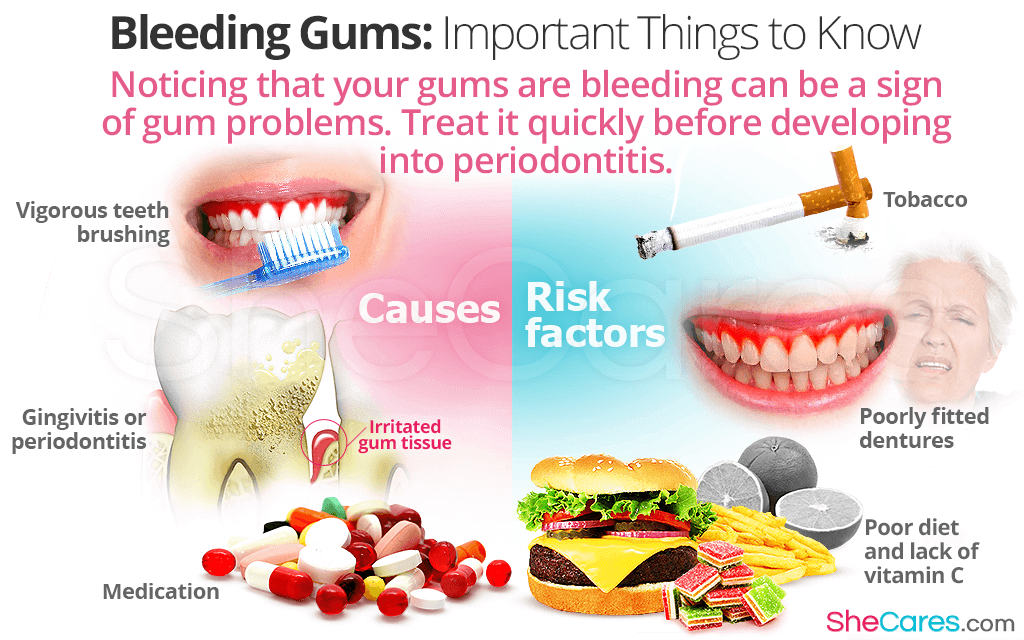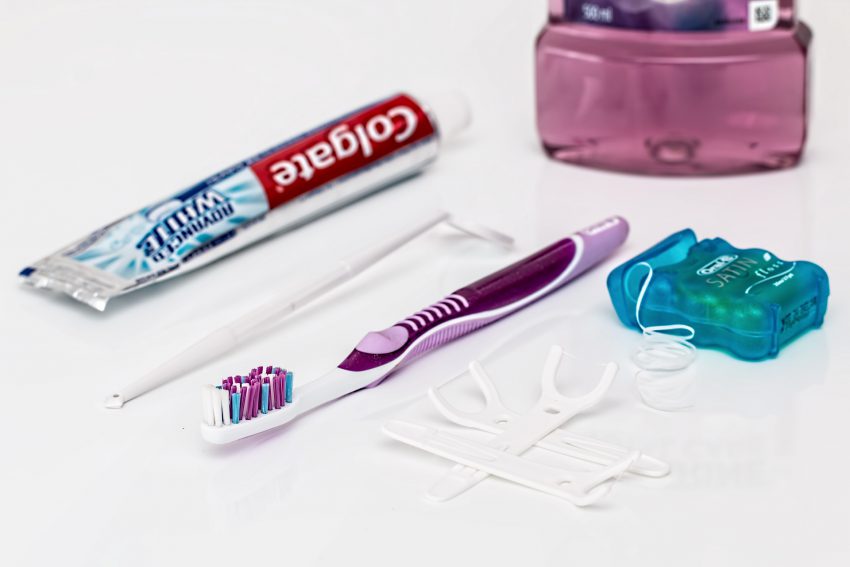Spitting out a bit of blood in the sink after brushing and flossing may not seem like a big deal. Sometimes, you may not even notice it. But bleeding gums is something you shouldn’t ignore. In fact, it could be an early sign of gum disease that should be addressed immediately!
There are several factors that can cause bleeding gums, read on to find out what it is and what you can do about it to get your oral health back on track.
What do bleeding gums mean?
Bleeding gums is caused by inadequate plaque removal. Plaque contains germs that attack the tissue around the teeth. If plaque build-up occurs, your gums become inflamed and irritated, and may bleed when brushing or flossing. If the plaque is not removed, it will cause the gums to separate and recede from your teeth.
This is called gingivitis and it’s the first stage of gum disease. Symptoms of gingivitis include swollen, red or tender gums; persistent bad breath or taste; loose teeth; and a change in the way your teeth fit when you bite. At this stage, it can be treated and completely reversed. So, please try not to ignore your bleeding gums.
If left untreated, it can progress into periodontitis (see illustration below), which causes tooth and bone loss, and you may experience painful abscesses, drifting of the teeth which interferes with chewing, and unsightly lengthening of the teeth with exposure of the roots.

What causes my gums to bleed?
Inadequate oral hygiene
Neglecting to clean your teeth and gums twice daily will soon show in the health of your gums as it takes very little time for plaque and tartar to build up. Plaque build-up irritates gums when left uncleaned for too long, which can be within as little as 24 hours.
Brush your teeth, gums and tongue twice daily, while flossing at least once a day. You can also use an antibacterial mouthwash to give your cleaning routine a boost.
Regular scaling and cleaning from your dentist is essential as well, as they can eradicate plaque and difficult tartar that you may not be able to reach or were unaware of.
Your diet
Foods high in sugar, starch, and acid can topple your diet as these can stick to teeth and along the gumline. If they’re not removed after consumption, they will start to eat away at teeth and gum tissues.
Substituting a meal with crunchy vegetables is good for your oral and overall health as they are low in sugar and filled with healthy proteins. Dairy products can also contribute to healthy teeth and gums, while foods with anti-inflammatory properties like fish oil are great for swollen gums.
Alternatively, you can always speak to your dentist for advice specific to your diet to help make managing your oral health easier.
Gum disease runs in your family
Gum disease can be hereditary and if you know that it runs in your family, you must be even more vigilant in your oral hygiene.
If you are unsure about the dental health of your family history, ask your dentist about DNA testing which can detect strains of gum disease. This may help to manage your own oral health.
Also be sure to inform your dentist if gum disease is in your DNA as they can offer expert advice on how to care for your teeth to prevent issues from cropping up down the road.

If you’re a smoker
Toxins found in cigarettes are extremely destructive, can weaken the gum tissues and cause discolouration, swelling, and bleeding in gums. Once your gums are exposed to the toxins, bacteria in your mouth can easily enter the gums and into the bloodstream. This causes further irritation, bleeding, swelling, and infection.
Quitting smoking is the only way to completely rid yourself of these toxins and allow your gum tissues to rebuild and become healthy again.
Additionally, brushing and flossing twice daily is important to keep harmful bacteria at bay. Speak to your health care and dental professionals about programs that can help you kick the habit for good.
How do I stop my gums from bleeding?
Don’t get us wrong; gum disease is not the end of your oral health but it is not something that should go unchecked either. It can be reversed with proper oral hygiene and dental professional care.
Regularly check in with your dentist to discuss your oral health concerns and see your dentist at the first sign of trouble for a comprehensive periodontal evaluation. they will prescribe a very aggressive dental care regimen that should get your gums healthy again.
